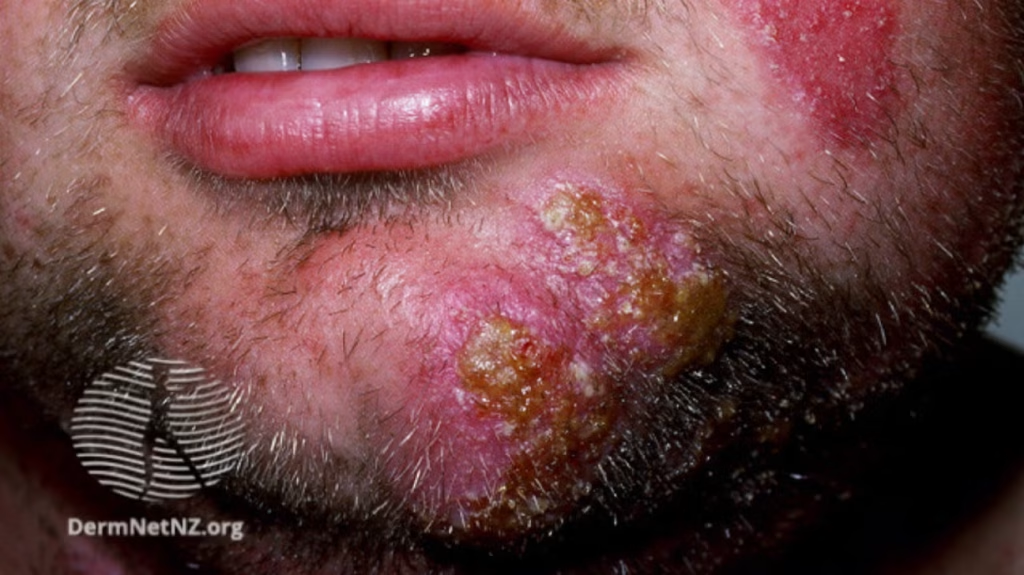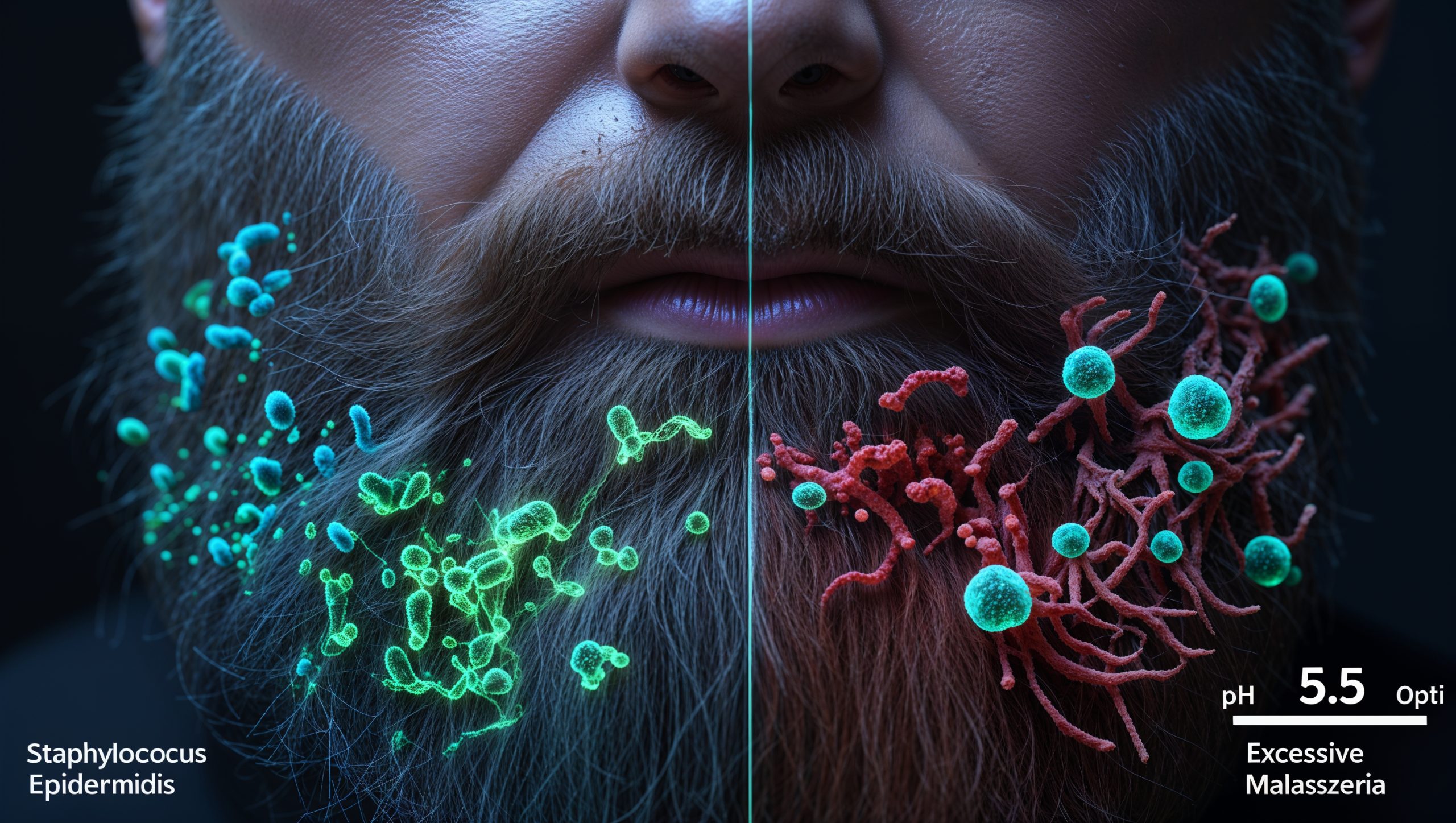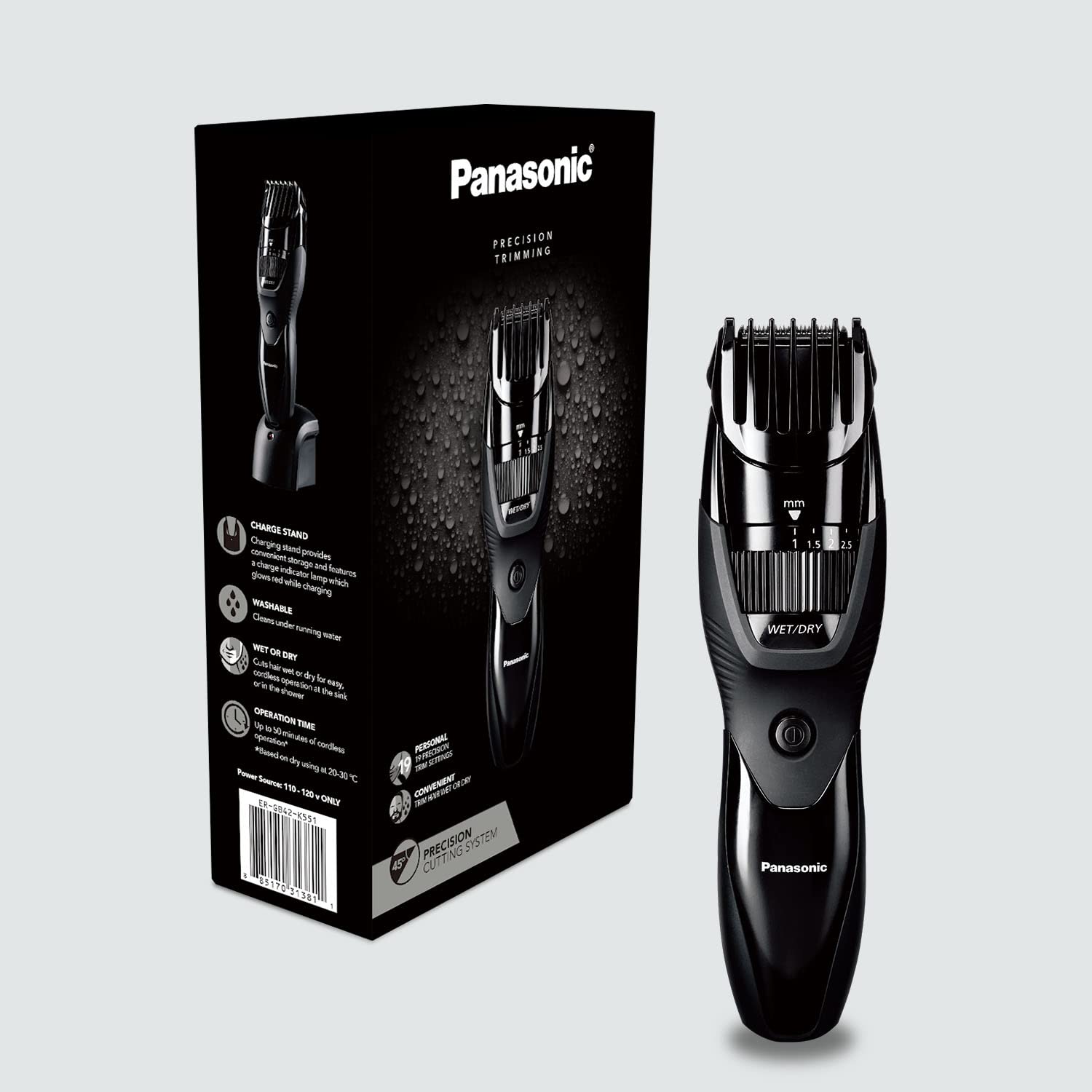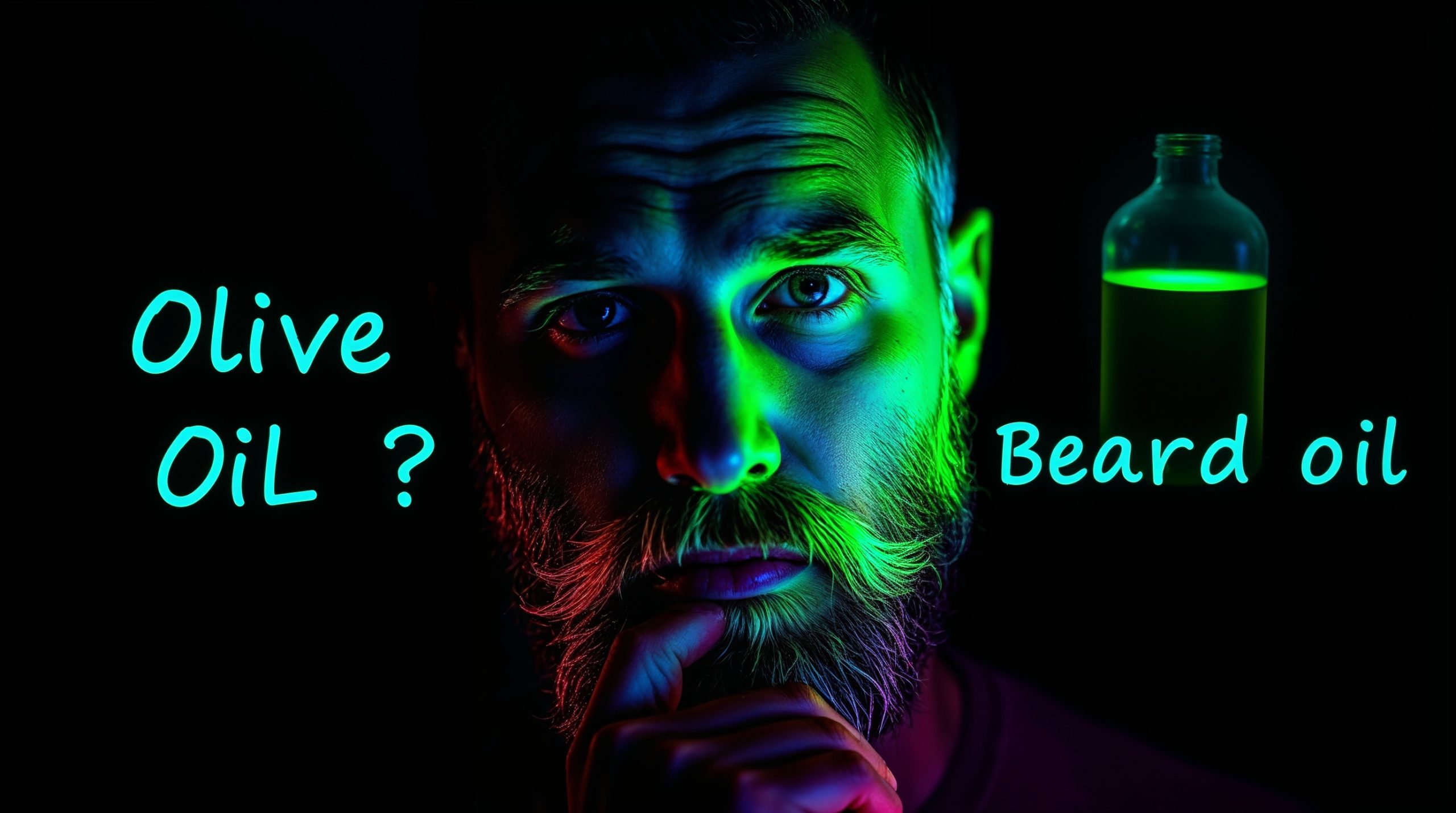Attention bearded brothers! Your face fuzz is more than just a fashion statement—it’s a thriving metropolis of microscopic residents.
You’ve spent months cultivating that glorious face forest, meticulously grooming every hair into submission. But have you ever stopped to consider who else might be calling your beard home? That’s right, gentlemen—your beard is teeming with life. Before you reach for the razor in horror, let’s dive into the fascinating world of beard microbiomes and discover why these tiny tenants might actually be your beard’s best friends.
The Beard Microbiome Ecosystem
A Thriving Ecosystem
Beneficial Bacteria
The good guys working to keep your beard healthy
- Staphylococcus epidermidis: Guards against harmful bacteria
- Propionibacterium: Maintains skin pH balance
- Lactobacillus: Produces antimicrobial compounds
Fungi
Natural inhabitants that help balance the ecosystem
- Malassezia: Common yeast that can both help and harm
- Candida: Usually harmless in balanced amounts
- Various environmental fungi from your surroundings
Natural Beard Defenses
How your beard protects itself
- Natural pH barrier (ideal: 5.5) deters harmful microbes
- Sebum coats hairs with protective oils
- Beneficial bacteria produce antimicrobial compounds
Potential Troublemakers
When balance is disrupted, these can cause issues
- Staphylococcus aureus: Can cause folliculitis
- Excessive Malassezia: May lead to beard dandruff
- Environmental bacteria from poor hygiene
Maintaining a Healthy Beard Microbiome
pH-Balanced Cleansing
Wash 2-3 times weekly with pH-balanced products (5.5) to maintain beneficial bacteria
Proper Hydration
Use natural beard oils and conditioners to nourish both hair and microbial inhabitants
Gentle Tools
Use micro cellular rubber or natural material tools that won’t disrupt the microbiome
The Beard Bacteria Myth-Busters
The Myth
Beards are dirtier than toilet seats and dog fur, harboring dangerous bacteria
The Reality
Research shows bearded men actually have fewer harmful bacteria than clean-shaven men
The Science
Microtrauma from shaving creates entry points for harmful bacteria to colonize
Recommended for Your Beard’s Microbiome
True O.G. Beard Wash
pH-balanced (5.5) for microbiome health
$14.99True O.G. Beard Conditioner
Biotin-enriched for optimal balance
$14.99Micro Cellular Rubber Comb
Gentle on microbiome balance
Coming SoonMeet Your Beard’s Tiny Inhabitants
Every beard, from five o’clock shadow to wizard-worthy whiskers, hosts billions of microorganisms that make up what scientists call the “beard microbiome.” This bustling community includes:
- Bacteria: Various species, both beneficial and potentially problematic
- Fungi: Including yeasts that naturally occur on skin
- Mites: Microscopic arachnids that feast on dead skin cells
- Viruses: Often specific to hair follicles


This diverse ecosystem isn’t much different from what you’d find on other parts of your body. Your gut, skin, and mouth all have their own unique microbiomes that work to maintain your health when properly balanced.
Did You Know?
Your beard’s microbiome is as unique as your fingerprint! Each man’s facial hair harbors a slightly different mix of microorganisms based on genetics, environment, and grooming habits.
The Great Beard Bacteria Debate: Dirtier Than a Dog?
You might have seen those alarming headlines: “Beards Contain More Fecal Bacteria Than Toilet Seats!” or “Men’s Beards Harbor More Bacteria Than Dog Fur!” But before you bust out the clippers, let’s set the record straight.
In 2019, a small European study claimed to find more bacteria in men’s beards than in dog fur. The internet promptly lost its collective mind, and clean-shaven smugness reached all-time highs. But here’s what they didn’t tell you: the presence of bacteria doesn’t automatically mean “dirty” or “dangerous.”
In fact, subsequent research tells a completely different story. A study published in the Journal of Hospital Infection found that bearded healthcare workers actually harbored fewer potentially harmful bacteria than their clean-shaven colleagues. Clean-shaven men were three times more likely to carry MRSA (Methicillin-resistant Staphylococcus aureus), a nasty antibiotic-resistant bacterium.
Why? Scientists believe that the microtrauma caused by regular shaving—those tiny nicks and cuts—creates entry points for bacteria to colonize. Your beard might actually be protecting your face from harmful invaders!

Tea Tree + Grapefruit Beard Wash
Use ROGUE10 to get your 10% off Elevate your grooming game with our premium Daily Beard Wash, crafted for daily use to cleanse, refresh, and soften your beard without over-stripping its natural oils.

True O.G. Beard Conditioner – Unscented
Don’t forget to use ROGUE10 for your discount Transform your beard care routine with our premium all-natural organic Beard Conditioner, crafted to deeply hydrate, soften, and nourish both your beard and the skin beneath. Infused with the power of plant-based ingredients.
Your Beard’s Microbiome and Your Health
Just like the microbiome in your gut affects your overall health, your beard’s bacterial population has important implications for your skin and facial health.
The Good Guys: Beneficial Bacteria
Your beard hosts several types of beneficial bacteria that:
- Create a protective barrier against pathogenic (harmful) bacteria
- Help maintain your skin’s natural pH balance
- May even produce antimicrobial compounds (nature’s antibiotics!)
Research from University College London found that certain bacteria isolated from beard samples were able to kill antibiotic-resistant E. coli in lab tests. Your beard might literally be brewing its own antibiotics!
The Troublemakers: When Balance Is Disrupted
Of course, not all microbes are beneficial. When your beard’s ecosystem gets thrown out of whack, less-friendly organisms can take over, potentially leading to:
- Folliculitis (inflamed hair follicles)
- Skin irritation and itchiness
- Beardruff (yes, beard dandruff is a thing)
- Unpleasant odors
The key is maintaining the right balance—just like any ecosystem, biodiversity is crucial for health.
The pH Factor: Balancing Your Beard’s Environment
One critical factor in maintaining a healthy beard microbiome is pH balance. Your skin naturally maintains a slightly acidic pH of around 5.5, which creates an optimal environment for beneficial bacteria while discouraging harmful microbes from setting up shop.
When this delicate pH balance is disrupted—often by harsh grooming products containing alkaline ingredients—your beard’s microbial community can go haywire. This is precisely why choosing pH-balanced beard care products is essential.
The True O.G. Beard Wash from The Bearded Coast is specifically formulated with a pH balance of 5.5 to work with your skin’s natural chemistry. Unlike regular shampoos or soaps that can strip away beneficial bacteria along with the bad, this gentle cleanser helps maintain your beard’s natural microbial balance.
Pro Tip:
When choosing beard care products, look for those that specifically mention “pH balanced” on the label. Your beard’s microscopic residents will thank you!
Factors That Influence Your Beard’s Microbiome
What makes one man’s beard a tropical paradise for beneficial bacteria while another’s becomes a problematic petri dish? Several factors influence your beard’s microbial makeup:
1. Environmental Exposure
Where you live, work, and play affects which microorganisms call your beard home. Urban environments, rural settings, and different climates all harbor different microbial populations.
2. Diet and Lifestyle
What goes in your body affects what grows on it. A diet rich in processed foods and sugar can promote the growth of less desirable microbes, while nutrient-dense foods support a healthier microbiome.
3. Age and Hormones
Hormone levels affect sebum production (your skin’s natural oil), which in turn influences which microorganisms thrive in your beard. This is why adolescents and young adults often experience more skin issues than older men.
4. Grooming Habits and Products
Perhaps the most controllable factor: how you treat your beard matters enormously. Harsh chemicals, infrequent washing, or overly aggressive grooming can all disrupt your beard’s delicate ecosystem.
Signs Your Beard Microbiome Might Be Out of Balance
How can you tell if your facial forest’s ecosystem needs some TLC? Watch for these warning signs:
- Persistent itchiness that doesn’t improve with moisturizing
- Redness or inflammation around hair follicles
- Flaking skin beneath your beard
- Unusual odors that persist even after washing
- Patchiness or areas where beard growth seems stunted
If you’re experiencing any of these symptoms, your beard’s microbial community might be crying out for help.

Cultivating a Healthy Beard Ecosystem
Now for the good stuff: how to nurture your beard’s microscopic inhabitants for optimal facial hair health.
Step 1: Proper Cleansing
The foundation of a healthy beard microbiome starts with proper cleansing. However, “clean” doesn’t mean “sterile”—you want to remove dirt, excess oil, and unwanted bacteria while preserving the beneficial microbes.
For optimal microbiome health, wash your beard 2-3 times per week with a pH-balanced cleanser like The Bearded Coast True O.G. Beard Wash. Its plant-based formula removes impurities without disrupting your skin’s natural balance, creating the perfect environment for beneficial bacteria to thrive.

Step 2: Hydration and Nourishment
After cleansing, it’s crucial to replenish moisture and provide nutrients for both your beard and the microorganisms living within it.
The Bearded Coast True O.G. Beard Conditioner contains biotin and plant-based ingredients that not only soften your beard but also help maintain the ideal environment for a healthy microbiome. The pH-balanced formula (6.0) ensures your beard’s ecosystem remains in harmony.
Step 3: Proper Grooming Tools
The tools you use on your beard can significantly impact its microbial health. Traditional plastic combs can create static electricity and damage hair shafts, potentially disrupting the microbiome’s balance.
Instead, opt for tools made with natural materials or specialized micro cellular rubber. These advanced materials are designed to glide through beard hair without causing damage or disrupting the delicate microbial balance that keeps your beard healthy.
Micro cellular rubber combs and brushes are particularly effective because their flexible composition conforms to your facial contours while being gentle on both hair and skin. Unlike rigid plastic tools, micro cellular rubber won’t create the microscopic scratches that can become breeding grounds for unwanted bacteria.
Step 4: Mindful Product Ingredients
Many conventional beard products contain preservatives, fragrances, and other chemicals that can wreak havoc on your beard’s microbiome. When selecting products, look for natural, minimally processed ingredients that work with your beard’s biology rather than against it.
The Bearded Coast’s product line is specifically formulated without harsh chemicals like silicones, sulfates, parabens, and phthalates that can disrupt microbial balance. Their “less is more” approach focuses on plant-derived ingredients that support a healthy beard ecosystem.

Tea Tree + Grapefruit Beard Wash
Use ROGUE10 to get your 10% off Elevate your grooming game with our premium Daily Beard Wash, crafted for daily use to cleanse, refresh, and soften your beard without over-stripping its natural oils.

True O.G. Beard Conditioner – Unscented
Don’t forget to use ROGUE10 for your discount Transform your beard care routine with our premium all-natural organic Beard Conditioner, crafted to deeply hydrate, soften, and nourish both your beard and the skin beneath. Infused with the power of plant-based ingredients.
The Future of Beard Microbiome Science
Research into facial hair microbiomes is still in its early stages, but the field is growing rapidly. Scientists are exploring fascinating possibilities:
- Probiotic beard products containing beneficial bacteria strains
- Personalized microbiome testing to determine your beard’s unique bacterial profile
- Targeted treatments for specific beard problems based on microbial analysis
Some forward-thinking companies are already developing grooming tools with antimicrobial properties, including specialized micro cellular rubber implements designed to maintain optimal bacterial balance while styling.
Frequently Asked Questions About Your Beard’s Microbiome
What exactly is a beard microbiome?
Your beard microbiome is the complex ecosystem of bacteria, fungi, mites, and other microscopic organisms that call your facial hair home. Think of it like a miniature rainforest – when balanced, these tiny tenants work together to protect your skin, maintain proper pH levels, and even fight off harmful invaders. Every beard has billions of these microscopic roommates, creating a unique biological fingerprint that’s different for every bearded gent.
Are beards really dirtier than toilet seats?
Absolutely not! This myth came from a small, questionable study that the media blew way out of proportion. Scientific research actually shows that bearded men harbor FEWER harmful bacteria than their clean-shaven counterparts. A study in the Journal of Hospital Infection found clean-shaven men were three times more likely to carry MRSA (a dangerous antibiotic-resistant bacterium) than bearded fellows. Those tiny shaving nicks create entry points for bad bacteria, while your magnificent mane acts as a protective barrier. So next time someone calls your beard ‘dirty,’ hit ’em with science!
How often should I wash my beard to maintain a healthy microbiome?
For optimal microbiome health, wash your beard 2-3 times per week with a pH-balanced cleanser (ideally around 5.5 pH). Over-washing strips away the beneficial bacteria and natural oils that keep your beard ecosystem in harmony, while under-washing allows troublemakers to throw a bacterial block party on your face. Remember: your goal isn’t a sterile beard (which is impossible and unhealthy), but rather a balanced community of beneficial microbes.
Can beard products damage my microbiome?
Absolutely! Many conventional beard products contain preservatives, fragrances, sulfates, and other harsh chemicals that can nuke your beard’s beneficial bacteria faster than you can say ‘facial foliage.’ Look for pH-balanced products with natural ingredients that work with your beard’s biology rather than against it. Products containing parabens, phthalates, and artificial fragrances are particularly problematic for your microscopic beard buddies.
What are the signs that my beard microbiome is unhealthy?
Your beard will send out SOS signals when its microbiome is out of whack. Watch for persistent itchiness that moisturizer doesn’t fix, redness around follicles, flaking skin beneath your beard, funky odors that stick around after washing, or patchy areas where growth seems stunted. These are all beard distress calls indicating your facial ecosystem needs rebalancing. If you’ve got the infamous ‘beardruff’ (beard dandruff), that’s a major red flag that your microbiome is throwing a tantrum.
Can my diet affect my beard microbiome?
What goes in your body absolutely affects what grows on it! A diet rich in processed foods and sugar can promote the growth of unwanted microbes, while nutrient-dense foods support a healthier beard ecosystem. Foods high in probiotics (yogurt, kimchi, sauerkraut) can actually influence your skin’s microbiome positively. Hydration is crucial too – proper water intake helps maintain the moisture balance that beneficial bacteria prefer. Think of nutritious food as fertilizer for your facial forest’s friendly inhabitants.
What grooming tools are best for maintaining a healthy beard microbiome?
Ditch those plastic combs that create static electricity and damage hair shafts! Opt instead for tools made with natural materials (wood, horn, cellulose) or specialized micro cellular rubber. These materials glide through beard hair without disrupting the delicate microbial balance that keeps your face forest thriving. Plastic and metal tools can create microscopic scratches that become breeding grounds for unwanted bacteria – basically turning your grooming routine into a microbial mosh pit. Invest in quality tools that work with your beard’s biology, not against it.
Can antibacterial soaps help keep my beard clean?
Hard NO on this one, bearded brothers! Antibacterial soaps are the equivalent of dropping a nuclear bomb on your beard’s ecosystem – they kill everything indiscriminately, including the beneficial bacteria that keep your skin and hair healthy. These harsh products also disrupt your skin’s natural pH balance, creating an environment where harmful microbes can actually thrive once they repopulate. Stick with gentle, pH-balanced beard washes specifically formulated to maintain your facial flora’s delicate balance.
Are there probiotics for beards?
The frontier of beard science is headed in exactly this direction! While dedicated beard probiotics are still emerging, some forward-thinking companies are already developing grooming products containing beneficial bacteria strains. These products aim to seed your beard with the good guys that crowd out potential troublemakers. In the meantime, you can support your existing beneficial bacteria by using pH-balanced products, avoiding harsh chemicals, and maintaining good beard hygiene without over-cleansing.
Can environmental factors affect my beard microbiome?
Your beard is basically a microbial sponge, soaking up bacteria, fungi, and other microscopic hitchhikers from everywhere you go! Urban environments, rural settings, and different climates all harbor distinct microbial populations that can take up residence in your facial thicket. Seasonal changes, travel, and even your workplace can influence which microorganisms call your beard home. Ever notice your beard behaves differently on vacation? Now you know why – you’ve introduced your face to a whole new crowd of microscopic locals!
Conclusion: Embracing Your Beard’s Biodiversity
Your beard isn’t just a style statement—it’s a complex ecosystem teeming with life. Instead of fighting against this natural phenomenon, the key to optimal beard health lies in working with your microbiome rather than against it.
By understanding and nurturing your beard’s bacterial buddies through proper cleansing, conditioning, and grooming, you’ll be rewarded with healthier, more manageable facial hair that looks and feels its best.
Remember: a happy microbiome makes for a happy beard—and a happy bearded man!
Recommended Products for Optimal Beard Microbiome Health:
- True O.G. Beard Wash – pH-balanced (5.5) cleanser that removes impurities while preserving beneficial bacteria
- True O.G. Beard Conditioner – Biotin-enriched formula that nourishes both beard and microbiome
- The Bearded Coast Chicago Comb – Specialized design that works with your beard’s natural ecosystem
This article was brought to you by The Bearded Rogue, your trusted source for all things beard.with a special thanks going to The Bearded Coast. Got questions about your beard’s microscopic residents? Drop a comment below or reach out to our beard experts!




